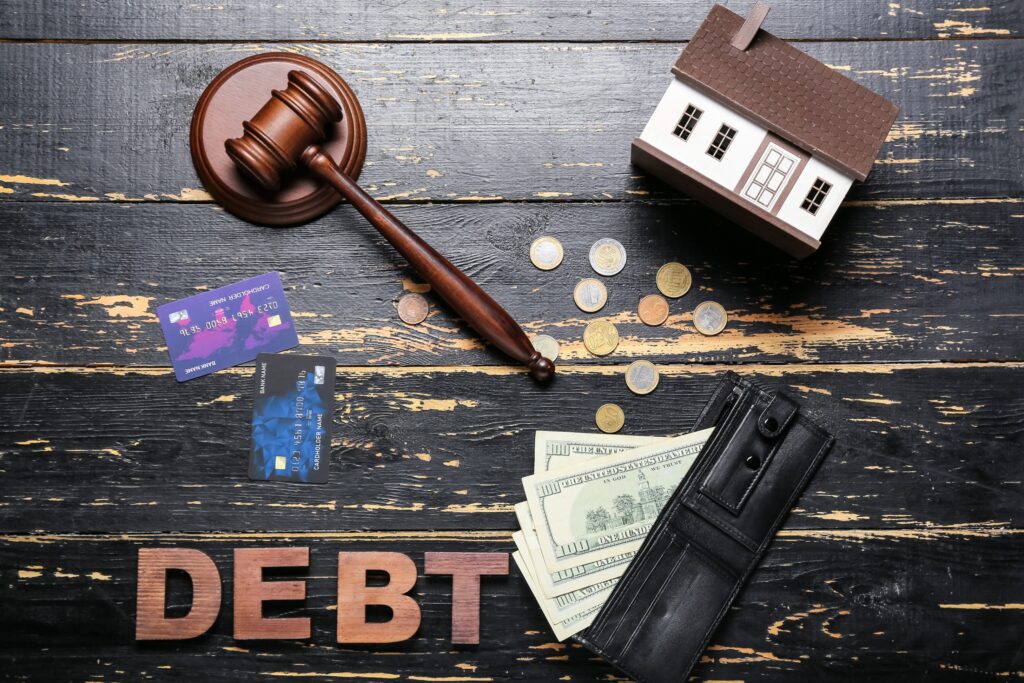Liquidation in a Chapter 7 Bankruptcy may seem like a scary thing, but it doesn’t need to be. If you’re considering filing for bankruptcy, you may have a lot of concerns about the process. Chapter 7 bankruptcy, often referred to as a “liquidation” bankruptcy, is designed to help you deal with overwhelming debt. Essentially, it allows you to wipe out most of your debts through a legal process that liquidates your assets to pay creditors. This might sound daunting, but it’s aimed at giving you a fresh start, free from financial burdens. Here we will break down the process and how it all works to help you understand your options better.
How Liquidation Works in Chapter 7 Bankruptcy
When you file for Chapter 7 bankruptcy, a bankruptcy trustee takes over your assets. Their job is to sell, or liquidate, any non-exempt assets to pay back your creditors as much as possible. Not all your possessions will be sold off. The law allows you to keep necessary items so that you can continue to live and work. The process starts with your filing a petition in bankruptcy court. Along with this petition, you must provide details about your finances, including debts, income, property, and the living expenses for your household.
Furthermore, you do not need to have any assets in order to file. Many people will have only debts when they file for a Chapter 7 bankruptcy. This can make the bankruptcy process very quick and easy when there is no liquidation in the Chapter 7 bankruptcy. The liquidation process is there to get rid of the excess items you have that are worth money. The U.S. Trustee is not interested in people losing everything, only what isn’t necessary that has monetary value.
Exempt Property: What You Can Keep
One of the key aspects of Chapter 7 bankruptcy is understanding which of your properties are exempt from liquidation. Exempt property includes assets that bankruptcy laws protect from being sold to satisfy creditor claims. These exemptions are crucial because they ensure you’re not left destitute and can have a foundation to rebuild after bankruptcy.
Federal Exemptions Under Chapter 7 Bankruptcy
Under federal law, several categories of exemptions can help protect your property. Here’s what you generally may be able to keep:
- Homestead: Okla. Stat. tit. 31 §§ 1(A)(1), (2) states that a “home or manufactured home constituting principal residence of debtor (160 acres of rural land OR 1 acre of urban land” is exempt. At least 75% of improved area of homestead must be used as principal residence, otherwise exemption is limited to $5,000.
- Personal Property: Items like clothing, household goods, and certain personal effects are often exempt, up to a particular value. You can have electronics, just not thousands of dollars worth.
- Firearms: Guns and other firearms are exempt up to $2,000.00.
- Motor Vehicle: There is an exemption for motor vehicles up to a certain value, currently $7,500. This applies mostly to cars that are paid off. A car you are still making payments on can have a reaffirmation agreement, which allows you to keep paying to keep it.
- Retirement Accounts: Retirement accounts are generally protected in bankruptcy. This includes your 401(k)s, IRAs, and other retirement plans, which are crucial for your future financial stability.
- Tools of Trade: If you have tools or other equipment necessary for your job, these may also be protected, up to a certain value.
- Wedding Jewelry: Wedding jewelry is exempt up to $4,000.00.
- Miscellaneous: There may also be exemptions available for things like public benefits (social security, unemployment, etc.), a portion of unpaid but earned wages, and damages awarded for personal injury claims.
These are only some of the exemptions, but other can be found under Okla. Stat. tit. 31 § 1.
State Exemptions
You should note that some states have opted out of the federal bankruptcy exemptions and require filers to use state-specific exemptions. State exemptions can be more or less generous than federal ones, depending on where you live. Oklahoma bankruptcies are exemption based, so it’s important to know what they are. Additionally, you have to have residency in Oklahoma for 6 months for some of the exemptions, and 2 years for others. If you do not meet this criteria, the attorney helping you file may need to use out of state exemptions for your case.
How to Claim Exemptions
When you file for Chapter 7 bankruptcy, you need to list all the property you own and specify which exemptions you’re claiming for each asset. This part of the process can be complex, and making mistakes can cost you valuable protections. Further, it can cause an adversary hearing where the creditors attempt to object to the discharge of a debt. It’s very important to seek out a bankruptcy lawyer who can help you go through everything. They will also draft all of the paperwork for you with the necessary exemptions listed.
Tulsa Bankruptcy Attorney
The liquidation process in a Chapter 7 bankruptcy is a necessary but not an impossible feat. Filing for Chapter 7 bankruptcy is a significant step that involves weighing the benefits and challenges. This process can provide relief and a path to regaining financial stability, allowing you to focus on moving forward without the weight of unmanageable debt. Kania Law Office has extensive experience handling bankruptcy issues in Oklahoma. Get in touch with Kania Law Office at 918-743-2233 or online for a consultation regarding your rights and options.
Tulsa's Local Bankruptcy Lawyers
 Are you looking for Tulsa attorneys who will fight aggressively for you? Our team of bankruptcy attorneys have the experience needed in Oklahoma law to secure the outcome you deserve.
Are you looking for Tulsa attorneys who will fight aggressively for you? Our team of bankruptcy attorneys have the experience needed in Oklahoma law to secure the outcome you deserve.
Call us today for a free consultation 918-743-2233 or contact us online.


